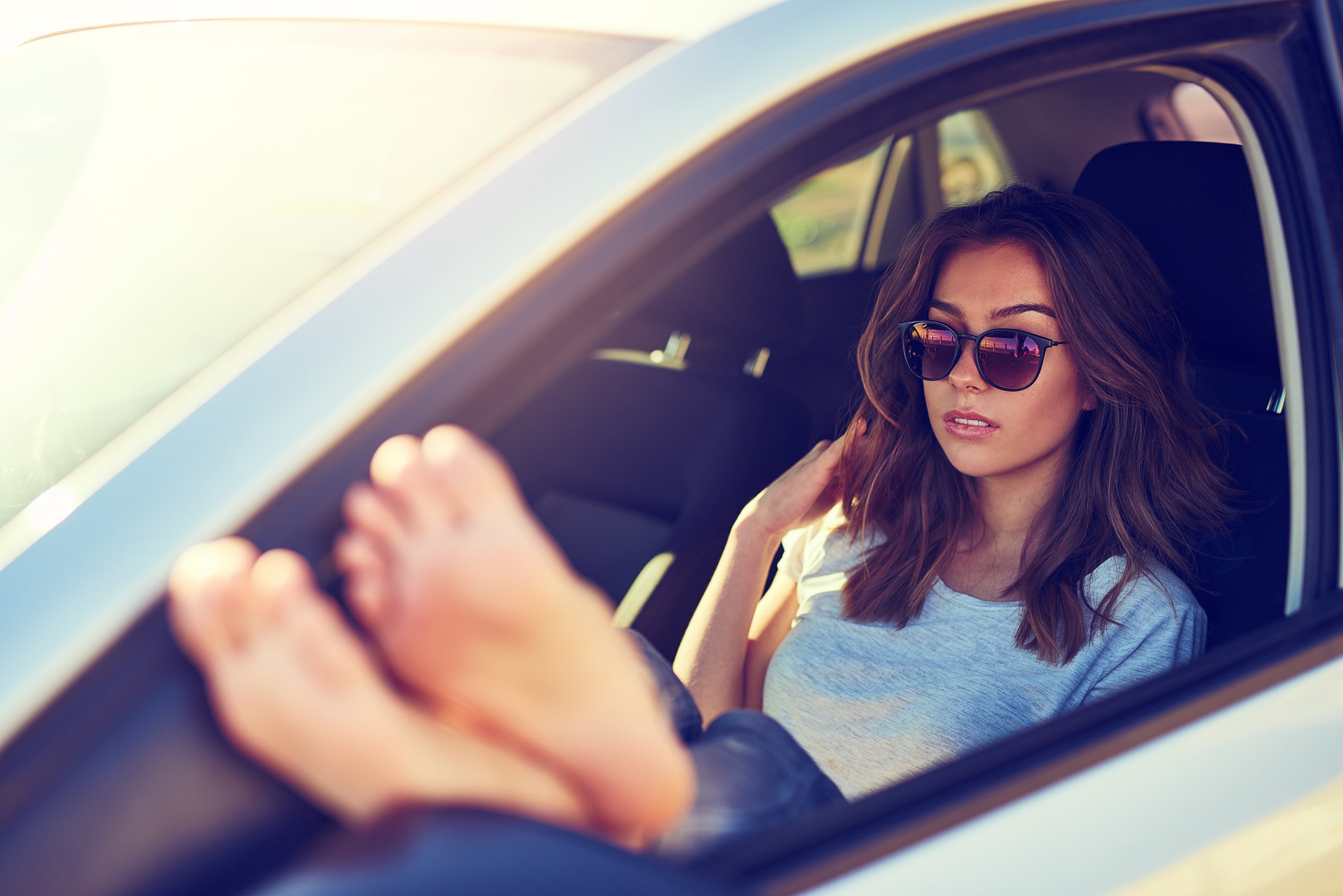Is It Legal to Drive Barefoot in NYC?
Michele Mirman | Car Accident | November 19, 2019

You leave a business meeting in New York City, hop into your car, and kick off your dress shoes. They’re uncomfortable, and you’d much rather drive barefoot. Is that legal, or does New York require drivers to wear shoes while operating a car? Here’s what you need to know.
You Don’t Have to Wear Shoes While Driving in New York
There’s no law in the state of New York that prohibits drivers from driving barefoot. Similarly, there’s no law on the books that requires drivers to have something on their feet. So, you can feel free to ditch your flip flops after a day at the beach or heels after a meeting downtown; it’s lawful to drive without shoes.
Why Would Laws Prohibit Barefoot Driving?
Why would a state have laws on the books outlawing driving barefoot, anyway? It all comes down to safety. Some experts believe it’s more dangerous to drive a car if you’re not wearing shoes. Others, however, believe it’s actually safer to drive a car while barefoot.
Dangers Associated With Driving While Barefoot
When you’re driving, you’re supposed to do everything you can to be as safe as possible. Many believe that wearing shoes is an important part of that equation. Why? If you’re barefoot, it might be harder to keep your foot on the pedals.
This might be particularly true if your foot or the pedals are wet. Since you don’t have the benefit of traction on the sole of the shoe, your foot can slip, preventing you from hitting the breaks or accelerating the car. This could potentially create a situation that contributes to a car accident.
Some Say Driving Barefoot is Safer Than Driving With Shoes
Not everyone believes that wearing shoes is the best choice. Why? Two reasons.
First, proponents of barefoot driving say you simply have a better ability to grip the pedals and control the vehicle if you’re barefoot. Shoes can get wet and become slippery.
Second, shoes can get stuck or lodged beneath the pedals. This is more likely if you’re wearing high heels, flip flops, slippers, or sandals. If the shoe gets stuck, it can cause you to lose control of the vehicle. It can also take your attention away from the road where it belongs.
In the end, the choice of footwear probably has a lot to do with how safe (or unsafe) driving with (or without) shoes is. Wearing tightly-secured sneakers or athletic shoes is probably the safest choice. If you’re wearing sandals or slippery dress shoes, it might be safer to ditch them altogether. Some drivers even have special driving shoes for these types of situations.
What Happens If I Get Into An Accident While Driving Barefoot?
So, driving barefoot is legal. However, there’s evidence to suggest it could be dangerous. What happens if you get into an accident while you’re driving barefoot? Can that affect your ability to recover compensation? Could it make you liable for damages others sustain in the crash? It depends.
In New York, you have a duty to obey traffic laws, drive carefully, and simply act in a way that minimizes the likelihood of causing harm. If you fail to do these things, you can be considered negligent. Can not wearing shoes be considered negligence? Maybe, if the reason (or one of the reasons) you got into the accident relates to your barefoot driving habit.
Just because something is legal doesn’t mean that it can’t get you into trouble if you’re in an accident. It’s legal to fidget with the radio while driving. However, if you veer off the road and hit a pedestrian while you’re changing the station, you can’t argue that you’re not liable because you didn’t break the law. Your distracted driving practices caused you to be negligent, which caused the collision. You’d be liable for damages sustained by that pedestrian because you were negligent, not because you broke the law.
Similarly, if it can be proven that your barefoot driving caused or contributed to an accident, you might be considered negligent. If you’re negligent, that can affect your ability to recover compensation.In New York, contributing to an accident won’t automatically prohibit you from recovering compensation. However, it will have an impact on your case. Your damages will be reduced to reflect your role in the accident. If you’re allocated 10 percent of the blame for a crash, your damages will be reduced by 10 percent.
